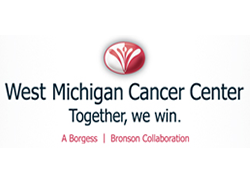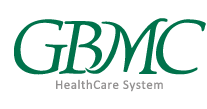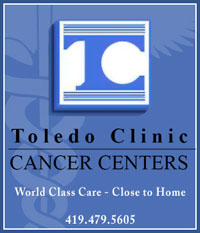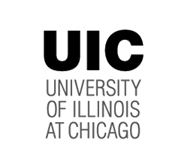Paclitaxel With or Without Carboplatin and/or Bevacizumab Followed by Doxorubicin and Cyclophosphamide in Treating Patients With Breast Cancer That Can Be Removed by Surgery
| Status: | Active, not recruiting |
|---|---|
| Conditions: | Breast Cancer, Cancer |
| Therapuetic Areas: | Oncology |
| Healthy: | No |
| Age Range: | 18 - Any |
| Updated: | 12/29/2018 |
| Start Date: | May 15, 2009 |
Randomized Phase II 2 x 2 Factorial Trial of the Addition of Carboplatin +/- Bevacizumab to Neoadjuvant Weekly Paclitaxel Followed by Dose-Dense AC in Hormone Receptor-Poor/HER2-Negative Resectable Breast Cancer
This randomized phase II trial studies how well paclitaxel with or without carboplatin and/or
bevacizumab followed by doxorubicin and cyclophosphamide works in treating patients with
breast cancer that can be removed by surgery. Drugs used in chemotherapy, such as paclitaxel,
carboplatin, doxorubicin, and cyclophosphamide, work in different ways to stop the growth of
tumor cells, either by killing the cells or by stopping them from dividing. Bevacizumab may
stop the growth of tumor cells by blocking blood flow to the tumor. Giving chemotherapy
together with bevacizumab before surgery may make the tumor smaller and reduce the amount of
normal tissue that needs to be removed.
bevacizumab followed by doxorubicin and cyclophosphamide works in treating patients with
breast cancer that can be removed by surgery. Drugs used in chemotherapy, such as paclitaxel,
carboplatin, doxorubicin, and cyclophosphamide, work in different ways to stop the growth of
tumor cells, either by killing the cells or by stopping them from dividing. Bevacizumab may
stop the growth of tumor cells by blocking blood flow to the tumor. Giving chemotherapy
together with bevacizumab before surgery may make the tumor smaller and reduce the amount of
normal tissue that needs to be removed.
PRIMARY OBJECTIVES:
I. To determine whether adding bevacizumab to neoadjuvant weekly paclitaxel (+/- carboplatin)
and subsequent dose-dense doxorubicin and cyclophosphamide (ddAC) significantly raises the
rate of pathologic complete response (pCR) in the breast in patients with hormone receptor
(HR)-poor/human epidermal growth factor receptor 2 (HER2) (-), resectable breast cancer.
II. To determine whether adding carboplatin every 3 weeks to neoadjuvant weekly paclitaxel
followed by ddAC (+/- bevacizumab) significantly raises the rate of pCR in the breast in
patients with HR-poor/HER2(-), resectable breast cancer.
III. To determine whether adding bevacizumab every 2 weeks to neoadjuvant weekly paclitaxel
(+/- carboplatin) and subsequent ddAC significantly raises the rate of pCR in the breast in
patients with basal-like breast cancers, as defined by gene expression array.
IV. To determine whether adding carboplatin every 3 weeks to neoadjuvant weekly paclitaxel
followed by ddAC (+/- bevacizumab) significantly raises the rate of pCR in the breast in
patients with basal-like breast cancers, as defined by gene expression array.
SECONDARY OBJECTIVES:
I. To determine the pCR rates in the breast and axilla, using American Joint Committee On
Cancer (AJCC) TNM criteria (version 6), to neoadjuvant weekly paclitaxel, with or without
carboplatin, followed by ddAC, with or without bevacizumab, given concurrently with the
weekly paclitaxel and ddAC, in (a) patients with HR-poor/HER2(-), resectable breast cancer
and (b) the subset of patients with basal-like breast cancers, as defined by gene expression
array.
II. To assess whether there is an interaction between the addition of carboplatin and
bevacizumab to neoadjuvant chemotherapy (NAC) with weekly paclitaxel followed by ddAC as
regards the path pCR rates in (a) patients with HR-poor/HER2(-), resectable breast cancer and
(b) the subset of patients with basal-like breast cancers, as defined by gene expression
array.
III. To assess the toxicity of the control regimen (weekly paclitaxel followed by ddAC) and
any incremental toxicities associated with the addition of carboplatin and/or bevacizumab in
this patient population, including the incidence of febrile neutropenia, grade >= 3
thrombocytopenia, grade >= 2 neurotoxicity, grade >= 3 hypertension, and clinically
significant bleeding or thrombotic (including cardiovascular and cerebrovascular) events.
IV. To determine the recurrence-free survival (RFS) measured from definitive surgery to first
event, and time to first failure (TFF) measured from study entry to first event.
V. To determine overall survival (OS), defined as time from registration to death from any
cause.
VI. To assess the impact of NAC with weekly paclitaxel followed by ddAC, with or without
carboplatin and/or bevacizumab, on axillary lymph node involvement at surgery, particularly
in patients with clinically or histologically positive axillary lymph nodes prior to
initiation of NAC.
VII. To assess the impact of the addition of bevacizumab to NAC on the incidence and severity
of post-op complications, especially excessive bleeding, delayed wound healing, and
thrombotic complications.
VIII. To evaluate residual cancer burden (RCB) as a predictor of RFS, TFF and OS.
IX. To determine the correlation between clinical, radiographic, and pathologic response.
TERTIARY OBJECTIVES:
I. To assess whether the impact of the addition of carboplatin and/or bevacizumab to NAC with
weekly paclitaxel followed by ddAC on achievement of pathologic CRs in patients with
HR-poor/HER2(-), resectable breast cancer is influenced by molecular subtype, as defined by
gene expression array.
II. To obtain blood, fresh frozen and fixed tumor tissue to test specific hypotheses for
which biomarker data exist and to evaluate biomarkers in tissue, blood, and serum that may
influence response to and toxicity of weekly paclitaxel, ddAC, carboplatin, and/or
bevacizumab.
III. To obtain blood samples to test specific hypotheses for which biomarker data exist and
to evaluate biomarkers in blood that may influence response to and toxicity of weekly
paclitaxel, ddAC, carboplatin and/or bevacizumab.
IV. To determine the surgical practice patterns for breast conservation and sentinel
lymphadenectomy in patients undergoing neoadjuvant chemotherapy.
V. To examine the practice patterns and use of sentinel lymphadenectomy (pre-chemotherapy or
post-chemotherapy) in patients with T2 or T3 breast cancer.
VI. To examine the proportion of patients who presented with T2 or T3 cancers who undergo
mastectomy despite cytoreduction adequate for breast conservation.
VII. To determine the radiotherapy practice patterns for post-mastectomy and regional nodal
irradiation in patients undergoing neoadjuvant chemotherapy.
OUTLINE: Patients are randomized to 1 of 4 treatment arms.
ARM I: Patients receive paclitaxel intravenously (IV) over 60 minutes once weekly in weeks
1-12. Patients then receive dose-dense doxorubicin hydrochloride IV over 3-10 minutes and
cyclophosphamide IV over 5-60 minutes (ddAC) once in weeks 13, 15, 17, and 19.
ARM II: Patients receive paclitaxel and ddAC as in Arm I. Patients also receive bevacizumab
IV over 30-90 minutes once in weeks 1, 3, 5, 7, 9, 11, 13, 15, and 17.
ARM III: Patients receive paclitaxel and ddAC as in Arm I. Patients also receive carboplatin
IV over 30 minutes once in weeks 1, 4, 7, and 10.
ARM IV: Patients receive paclitaxel and ddAC as in Arm I, bevacizumab as in Arm II, and
carboplatin as in Arm III.
Patients in all arms undergo definitive surgery (i.e., modified radical mastectomy or
breast-conserving surgery with appropriate management of the axilla) between 4-8 weeks after
completion of neoadjuvant therapy.
After completion of study treatment, patients are followed up periodically for up to 10
years.
I. To determine whether adding bevacizumab to neoadjuvant weekly paclitaxel (+/- carboplatin)
and subsequent dose-dense doxorubicin and cyclophosphamide (ddAC) significantly raises the
rate of pathologic complete response (pCR) in the breast in patients with hormone receptor
(HR)-poor/human epidermal growth factor receptor 2 (HER2) (-), resectable breast cancer.
II. To determine whether adding carboplatin every 3 weeks to neoadjuvant weekly paclitaxel
followed by ddAC (+/- bevacizumab) significantly raises the rate of pCR in the breast in
patients with HR-poor/HER2(-), resectable breast cancer.
III. To determine whether adding bevacizumab every 2 weeks to neoadjuvant weekly paclitaxel
(+/- carboplatin) and subsequent ddAC significantly raises the rate of pCR in the breast in
patients with basal-like breast cancers, as defined by gene expression array.
IV. To determine whether adding carboplatin every 3 weeks to neoadjuvant weekly paclitaxel
followed by ddAC (+/- bevacizumab) significantly raises the rate of pCR in the breast in
patients with basal-like breast cancers, as defined by gene expression array.
SECONDARY OBJECTIVES:
I. To determine the pCR rates in the breast and axilla, using American Joint Committee On
Cancer (AJCC) TNM criteria (version 6), to neoadjuvant weekly paclitaxel, with or without
carboplatin, followed by ddAC, with or without bevacizumab, given concurrently with the
weekly paclitaxel and ddAC, in (a) patients with HR-poor/HER2(-), resectable breast cancer
and (b) the subset of patients with basal-like breast cancers, as defined by gene expression
array.
II. To assess whether there is an interaction between the addition of carboplatin and
bevacizumab to neoadjuvant chemotherapy (NAC) with weekly paclitaxel followed by ddAC as
regards the path pCR rates in (a) patients with HR-poor/HER2(-), resectable breast cancer and
(b) the subset of patients with basal-like breast cancers, as defined by gene expression
array.
III. To assess the toxicity of the control regimen (weekly paclitaxel followed by ddAC) and
any incremental toxicities associated with the addition of carboplatin and/or bevacizumab in
this patient population, including the incidence of febrile neutropenia, grade >= 3
thrombocytopenia, grade >= 2 neurotoxicity, grade >= 3 hypertension, and clinically
significant bleeding or thrombotic (including cardiovascular and cerebrovascular) events.
IV. To determine the recurrence-free survival (RFS) measured from definitive surgery to first
event, and time to first failure (TFF) measured from study entry to first event.
V. To determine overall survival (OS), defined as time from registration to death from any
cause.
VI. To assess the impact of NAC with weekly paclitaxel followed by ddAC, with or without
carboplatin and/or bevacizumab, on axillary lymph node involvement at surgery, particularly
in patients with clinically or histologically positive axillary lymph nodes prior to
initiation of NAC.
VII. To assess the impact of the addition of bevacizumab to NAC on the incidence and severity
of post-op complications, especially excessive bleeding, delayed wound healing, and
thrombotic complications.
VIII. To evaluate residual cancer burden (RCB) as a predictor of RFS, TFF and OS.
IX. To determine the correlation between clinical, radiographic, and pathologic response.
TERTIARY OBJECTIVES:
I. To assess whether the impact of the addition of carboplatin and/or bevacizumab to NAC with
weekly paclitaxel followed by ddAC on achievement of pathologic CRs in patients with
HR-poor/HER2(-), resectable breast cancer is influenced by molecular subtype, as defined by
gene expression array.
II. To obtain blood, fresh frozen and fixed tumor tissue to test specific hypotheses for
which biomarker data exist and to evaluate biomarkers in tissue, blood, and serum that may
influence response to and toxicity of weekly paclitaxel, ddAC, carboplatin, and/or
bevacizumab.
III. To obtain blood samples to test specific hypotheses for which biomarker data exist and
to evaluate biomarkers in blood that may influence response to and toxicity of weekly
paclitaxel, ddAC, carboplatin and/or bevacizumab.
IV. To determine the surgical practice patterns for breast conservation and sentinel
lymphadenectomy in patients undergoing neoadjuvant chemotherapy.
V. To examine the practice patterns and use of sentinel lymphadenectomy (pre-chemotherapy or
post-chemotherapy) in patients with T2 or T3 breast cancer.
VI. To examine the proportion of patients who presented with T2 or T3 cancers who undergo
mastectomy despite cytoreduction adequate for breast conservation.
VII. To determine the radiotherapy practice patterns for post-mastectomy and regional nodal
irradiation in patients undergoing neoadjuvant chemotherapy.
OUTLINE: Patients are randomized to 1 of 4 treatment arms.
ARM I: Patients receive paclitaxel intravenously (IV) over 60 minutes once weekly in weeks
1-12. Patients then receive dose-dense doxorubicin hydrochloride IV over 3-10 minutes and
cyclophosphamide IV over 5-60 minutes (ddAC) once in weeks 13, 15, 17, and 19.
ARM II: Patients receive paclitaxel and ddAC as in Arm I. Patients also receive bevacizumab
IV over 30-90 minutes once in weeks 1, 3, 5, 7, 9, 11, 13, 15, and 17.
ARM III: Patients receive paclitaxel and ddAC as in Arm I. Patients also receive carboplatin
IV over 30 minutes once in weeks 1, 4, 7, and 10.
ARM IV: Patients receive paclitaxel and ddAC as in Arm I, bevacizumab as in Arm II, and
carboplatin as in Arm III.
Patients in all arms undergo definitive surgery (i.e., modified radical mastectomy or
breast-conserving surgery with appropriate management of the axilla) between 4-8 weeks after
completion of neoadjuvant therapy.
After completion of study treatment, patients are followed up periodically for up to 10
years.
Inclusion Criteria:
- Invasive breast cancer, diagnosed by core needle or incisional biopsy (excisional
biopsy not permitted)
- The invasive tumor must be hormone receptor-poor, defined as both estrogen receptor
(ER) and progesterone receptor (PgR) negative or staining present in =< 10% of
invasive cancer cells by immunohistochemistry (IHC)
- The invasive tumor must be HER2-negative, defined as IHC 0-1+ or with a fluorescent in
situ hybridization (FISH) ratio (HER2 gene copy/chromosome 17) of < 2.0 if IHC 2+
- Clinical stage II-III invasive breast cancer with intent to perform surgical resection
after neoadjuvant therapy; patients with inflammatory breast cancer are not eligible;
staging to rule out metastatic disease is recommended for clinical stage III patients
- Patients with multicentric or bilateral disease are eligible if the target lesion
meets eligibility criteria
- Patient agrees to undergo pretreatment research biopsies
- No prior chemotherapy, hormone therapy, or radiation therapy with therapeutic intent
for this cancer
- The target lesion in the breast must be >= 1 cm, clinically or radiographically;
palpable or radiographically measurable axillary adenopathy will be recorded but will
not serve as measurable disease for the primary endpoint; patients with axillary
disease only (no identifiable tumor in the breast that is >= 1 cm on physical exam or
radiographic study) are not eligible to participate
- Patients with a history of significant bleeding episodes (e.g., hemoptysis, upper or
lower gastrointestinal [GI] bleeding) within 6 months of registration are not eligible
- No serious or non-healing wound, skin ulcers or bone fracture; no abdominal fistula,
gastrointestinal perforation or intra-abdominal abscess within the past 6 months; no
major surgical procedure within 28 days prior to randomization or anticipation of need
for major surgery during the course of study
- The following are not considered to be major surgical procedures that would be
prohibited in the 28 days prior to, or following study randomization: obtaining the
required research needle biopsies; placement of a radiopaque clip to localize a tumor
or tumors for subsequent surgical resection; placement of a port for central venous
access; fine needle aspiration of a prominent or suspicious axillary lymph node;
needle biopsy of a clinically or radiographically detected lesion to rule out
metastatic disease; or pretreatment sentinel lymph node sampling
- No baseline neuropathy grade >= 2
- Zubrod performance status 0-1
- Pregnant or nursing women are not eligible; all women of reproductive potential must
have a negative pregnancy test at baseline and agree to use an effective, non-hormonal
method of contraception during the entire period of treatment on the study
- Patients with congestive heart failure are not eligible, nor are patients with
myocardial infarction, unstable angina pectoris, an arterial thrombotic event, stroke
or transient ischemia attack (TIA) within the past 12 months, uncontrolled
hypertension (systolic blood pressure [SBP] > 160 or diastolic blood pressure [DBP] >
90), uncontrolled or symptomatic arrhythmia, or grade II or greater peripheral
vascular disease
- Patients must have a pretreatment multi gated acquisition (MUGA) scan or
echocardiogram with a left ventricular ejection fraction (LVEF) above the
institutional lower limit of normal
- Granulocytes > 1,000/mcl
- Platelets > 100,000/mcl
- Total bilirubin =< 1.5 x upper limits of normal
- Calculated or measured > 30 ml/min
- Urine protein =< 1+ or urine protein to creatinine (UPC) ratio < 1
- Patients discovered to have >= 2+ proteinuria at baseline must undergo a 24-hour
urine collection that must demonstrate < 1 g of protein/24 hr, or UPC ratio < 1
to allow participation in the study
- Serum alanine aminotransferase (ALT) =< 2.5 x upper limits of normal
- Serum beta human chorionic gonadotropin (HCG) negative (for women of child bearing
potential)
- Prothrombin time (PT)/international normalized ratio (INR) =< 1.5 x upper limit of
normal (ULN)
- Unless patient is on therapeutic doses of warfarin; if so, the patient must have
an INR =< 3 on a stable dose of warfarin, must have not active bleeding or
pathologic condition that is associated with a high risk of bleeding
We found this trial at
454
sites
Click here to add this to my saved trials
Beth Israel Deaconess Medical Center Beth Israel Deaconess Medical Center (BIDMC) is one of the...
Click here to add this to my saved trials
Brigham and Women's Hosp Boston’s Brigham and Women’s Hospital (BWH) is an international leader in...
Click here to add this to my saved trials
Roswell Park Cancer Institute Welcome to Roswell Park Cancer Institute (RPCI), America's first cancer center...
Click here to add this to my saved trials
City of Hope Comprehensive Cancer Center City of Hope is a leading research and treatment...
Click here to add this to my saved trials
Holy Cross Hospital While spirituality plays an essential role in the way that we minister...
Click here to add this to my saved trials
University of Mississippi Medical Center The University of Mississippi Medical Center, located in Jackson, is...
Click here to add this to my saved trials
Click here to add this to my saved trials
Bronson Methodist Hospital Our healthcare system serves patients and families throughout southwest Michigan and northern...
Click here to add this to my saved trials
West Michigan Cancer Center In 1994, Borgess Health Alliance and Bronson Healthcare Group opened the...
Click here to add this to my saved trials
Rhode Island Hospital Founded in 1863, Rhode Island Hospital in Providence, RI, is a private,...
Click here to add this to my saved trials
1100 Fairview Avenue North
Seattle, Washington 98109
Seattle, Washington 98109
(206) 667-5000

Fred Hutchinson Cancer Research Center At Fred Hutchinson Cancer Research Center, our interdisciplinary teams of...
Click here to add this to my saved trials
Avera Cancer Institute Avera, the health ministry of the Benedictine and Presentation Sisters, is a...
Click here to add this to my saved trials
601 South Sherman Street
Spokane, Washington 99202
Spokane, Washington 99202
(509) 228-1000

Cancer Care Northwest - Spokane South Cancer Care Northwest is the Inland Northwest’s premier cancer...
Click here to add this to my saved trials
Click here to add this to my saved trials
Click here to add this to my saved trials
Bixby Medical Center ProMedica's Mission is to improve your health and well-being. Which is why,...
Click here to add this to my saved trials
Click here to add this to my saved trials
Click here to add this to my saved trials
Click here to add this to my saved trials
170 North 1100 East
American Fork, Utah 84003
American Fork, Utah 84003
Click here to add this to my saved trials
Click here to add this to my saved trials
AnMedical Health Cancer Center Cancer is the general term for a group of more than...
Click here to add this to my saved trials
Click here to add this to my saved trials
Click here to add this to my saved trials
Click here to add this to my saved trials
Randolph Hospital Since 1932, Randolph Hospital has been fortunate to employ dedicated and loyal personnel...
Click here to add this to my saved trials
Click here to add this to my saved trials
Piedmont Hospital For more than a century, Piedmont Healthcare has been a recognized leader in...
Click here to add this to my saved trials
Click here to add this to my saved trials
Northside Hospital Northside Hospital-Atlanta (in Sandy Springs) opened in 1970. The original facility had 250...
Click here to add this to my saved trials
Click here to add this to my saved trials
Click here to add this to my saved trials
Medical Center of Aurora At The Medical Center of Aurora and Centennial Medical Plaza patients...
Click here to add this to my saved trials
Click here to add this to my saved trials
22 South Greene Street
Baltimore, Maryland 21201
Baltimore, Maryland 21201
410-328-7904

University of Maryland Greenebaum Cancer Center The University of Maryland Marlene and Stewart Greenebaum Cancer...
Click here to add this to my saved trials
Click here to add this to my saved trials
Greater Baltimore Medical Center The 255-bed medical center (acute and sub-acute care) is located on...
Click here to add this to my saved trials
Eastern Maine Medical Center Located in Bangor, Eastern Maine Medical Center (EMMC) serves communities throughout...
Click here to add this to my saved trials
Summa Barberton Hospital Summa Barberton Hospital is a full member of Summa Health System and...
Click here to add this to my saved trials
Click here to add this to my saved trials
Click here to add this to my saved trials
Click here to add this to my saved trials
8901 Rockville Pike
Bethesda, Maryland 20889
Bethesda, Maryland 20889
(301) 295-4000

Walter Reed National Military Medical Center The Walter Reed National Military Medical Center is one...
Click here to add this to my saved trials
Click here to add this to my saved trials
Click here to add this to my saved trials
Click here to add this to my saved trials
Saint Vincent Healthcare The Sisters of Charity of Leavenworth, Kansas, founded St. Vincent Healthcare in...
Click here to add this to my saved trials
Click here to add this to my saved trials
Click here to add this to my saved trials
Massachusetts General Hospital Cancer Center An integral part of one of the world
Click here to add this to my saved trials
Dana-Farber Cancer Institute Since it’s founding in 1947, Dana-Farber has been committed to providing adults...
Click here to add this to my saved trials
Boulder Community Hospital Founded in 1922 as a community-owned and operated not-for-profit hospital, Boulder Community...
Click here to add this to my saved trials
Toledo Clinic Cancer Centers-Bowling Green Our doctors evaluate and make recommendations regarding cancer treatment for...
Click here to add this to my saved trials
Bozeman Deaconess Hospital Bozeman Deaconess Hospital is a Joint Commission certified, licensed Level III trauma...
Click here to add this to my saved trials
Click here to add this to my saved trials
Click here to add this to my saved trials
Click here to add this to my saved trials
Click here to add this to my saved trials
Maimonides Medical Center At 103 years old, Maimonides Medical Center remains a vital and thriving...
Click here to add this to my saved trials
Click here to add this to my saved trials
Click here to add this to my saved trials
Click here to add this to my saved trials
Click here to add this to my saved trials
Click here to add this to my saved trials
Fairview Ridges Hospital Fairview Ridges Hospital is a 150-bed, Level III Trauma Care facility, offering...
Click here to add this to my saved trials
Click here to add this to my saved trials
400 South Clark Street
Butte, Montana 59701
Butte, Montana 59701
406-723-2500

Saint James Community Hospital and Cancer Treatment Center St. James Healthcare has played an important...
Click here to add this to my saved trials
Aultman Health Foundation The Aultman Foundation will raise and administer funds in order to support...
Click here to add this to my saved trials
Southeast Cancer Center SoutheastHEALTH is a far-reaching network of providers and facilities including Southeast Hospital...
Click here to add this to my saved trials
Rocky Mountain Oncology Rocky Mountain Oncology Center is a spacious, comfortable, state-of-the-art 19,000 square foot...
Click here to add this to my saved trials
20055 Lake Chabot Rd #130
Castro Valley, California 94546
Castro Valley, California 94546
(510) 888-0657

Valley Medical Oncology Consultants - Castro Valley Valley Medical Oncology Consultants (VMOC) has been helping...
Click here to add this to my saved trials
East Bay Radiation Oncology Center East Bay Radiation Oncology Center offers superior medical and technical...
Click here to add this to my saved trials
Click here to add this to my saved trials
Sandra L. Maxwell Cancer Center The Huntsman-Intermountain Cancer Center at Valley View Medical Center in...
Click here to add this to my saved trials
Click here to add this to my saved trials
Click here to add this to my saved trials
Click here to add this to my saved trials
Click here to add this to my saved trials
Cancer Center of Kansas, PA - Chanute Dr. H.E. Hynes founded Cancer Center of Kansas,...
Click here to add this to my saved trials
Click here to add this to my saved trials
Click here to add this to my saved trials
Click here to add this to my saved trials
Click here to add this to my saved trials
Saint Luke's Hospital St. Luke's Hospital, located in Chesterfield, Missouri, is a regional healthcare provider...
Click here to add this to my saved trials
1969 W Ogden Ave
Chicago, Illinois 60612
Chicago, Illinois 60612
(312) 864-6000

John H. Stroger, Jr. Hospital of Cook County The Level 1 Trauma Center is one...
Click here to add this to my saved trials
Click here to add this to my saved trials
Click here to add this to my saved trials
Click here to add this to my saved trials
Univ of Illinois A major research university in the heart of one of the world's...
Click here to add this to my saved trials
5841 S Maryland Ave
Chicago, Illinois 60637
Chicago, Illinois 60637
1-773-702-6180

University of Chicago Comprehensive Cancer Center The University of Chicago Comprehensive Cancer Center (UCCCC) is...
Click here to add this to my saved trials
Click here to add this to my saved trials
Penrose-Saint Francis Healthcare Founded by the Sisters of St. Francis and the Sisters of Charity,...
Click here to add this to my saved trials
University of Missouri-Ellis Fischel Ellis Fischel Cancer Center's team of physician specialists and other trained...
Click here to add this to my saved trials
John B. Amos Cancer Center The John B. Amos Cancer Center located in Columbus, Georgia,...
Click here to add this to my saved trials
Click here to add this to my saved trials
Click here to add this to my saved trials
Mercy Hospital Mercy Hospital, located in Coon Rapids, Minnesota, is a 271-bed non-profit hospital that...
Click here to add this to my saved trials
Click here to add this to my saved trials
Good Samaritan Hospital - Dayton Good Samaritan Hospital (GSH) is passionate about providing the most...
Click here to add this to my saved trials
Grandview Hospital You'll feel like part of our family when you visit Grandview Medical Center...
Click here to add this to my saved trials






































